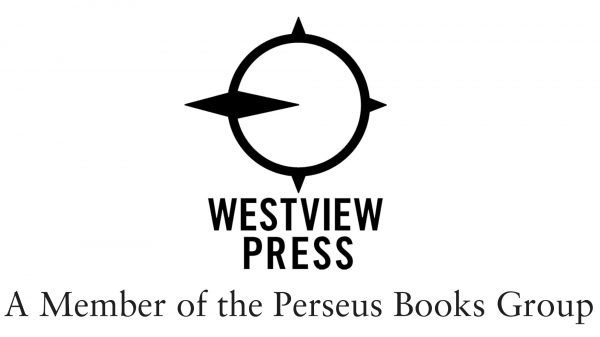This post is also available in:
 English (الإنجليزية)
English (الإنجليزية)
| Name of Publishing House | west view press |
|---|---|
| website | https://westviewpress.com/ |
| Communication | https://westviewpress.com/#contact |
About Us
OUR HISTORY
Frederick A. Praeger and Maurice B. Mitchell founded Westview Press in 1975 in Boulder, Colorado. From its modest beginnings in the basement of Fred Praeger’s house on Westview Drive, Westview Press quickly became a leading academic publishing house. In 1975, Westview published nine books; by 1979, the number of new books published had grown to 169.
Westview Press flourished under the editorial direction and entrepreneurial leadership of Fred Praeger. He established Westview as a publishing house committed to the circulation and distillation of ideas among the academic community and the transfer of those arguments beyond academia to the wider community of thoughtful readers. The motto “Books that Matter” exemplified the Westview spirit of those early years and continues to inspire our publishing program 40 years later.
Today Westview Press publishes high-quality undergraduate- and graduate-level textbooks in core social science disciplines, building upon our existing strengths in political science, area studies, international relations, and sociology. With books developed, written, and edited with the needs of serious nonfiction readers, professors, and students in mind, Westview Press honors Fred Praeger’s legacy.
Many Westview Press textbooks are classroom classics, adopted for course use for many years and through multiple editions. Some of Westview’s signature titles include: William Cleveland’s A History of the Modern Middle East (now in its Fifth Edition); Arthur Goldschmidt’s A Concise History of the Middle East (38 years in print, now in its Eleventh Edition); Charles Lemert’s Social Theory (now in its Sixth Edition); Jay MacLeod’s Ain’t No Makin’ It, Third Edition; Rosemarie Tong’s Feminist Thought, Fourth Edition; Jaegwon Kim’s Philosophy of Mind, Third Edition; Jack Donnelly’s International Human Rights, Fourth Edition; Paula McClain’s “Can We All Get Along?,” Sixth Edition; Paul Sabatier’s Theories of the Policy Process, Third Edition; and Leland Roth’s Understanding Architecture, Third Edition.
We wish to thank our house authors and editors who built the Westview list over the years. In fulfilling our mission of sharing knowledge with the world, we have been fortunate to work with scholars from around the globe who have enriched us and our readers with their research, writing, and partnership.
In the words and vision of Westview’s founder: “We see our future as a sort of knowledge supermarket, where service to our readers is enthusiastic, efficient, and highly professional…All of us at Westview raise our teacups and coffee mugs in a salute to you, our authors, and our audience, our friends and customers, all of you who make Westview the kind of funny, peculiar, original success story it is.” —Fred Praeger
OUR FOUNDER
Fred Praeger’s passion for ideas and sharing those ideas began when he was young, and his life story is one of living that passion.
Praeger was born in Vienna in 1915. His father, Dr. Max Praeger, was a publisher and bookseller. Praeger studied law and political science at the University of Vienna but left university following the forced unification with Germany in 1938. Praeger came to the United States, but his family remained in Austria and died at Auschwitz. Praeger joined the United States Army in 1941, became a German-specialist intelligence officer, and returned to Vienna. In 1948, Praeger came back to the United States and opened a book exporting company in New York City. Just two years later, in 1950, he founded Praeger Publishers in Greenwich Village.
Praeger Publishers’ focus was international relations books with an emphasis on Eastern Europe. The company also published military science, art, and archaeology titles, quickly becoming a leading and respected publishing house in these areas. For many Western readers, Praeger Publishers’ titles provided their first introduction to Communist life, views, and values.
After Praeger sold his eponymous press in 1966, he participated in various publishing ventures in Europe before moving to Boulder, where he founded Westview Press in 1975. Westview Press was sold in 1990, and Fred Praeger died in 1994 at the age of 78.
For many years Fred Praeger compiled his thoughts and reflections in Westview Press “catalog letters.” The letters discussed everything from his personal and professional history to frustration with political issues and current events. These letters were a source of continuity for customers, readers, and staff, who eagerly awaited the next letter’s humor and candor. Looking back on those letters provides a picture of a compelling man and a bold vision Westview Press is proud to continue today.
“What we accomplish at Westview is the result of a confluence of teamwork, community, ideas, and an environment in which all our resources could coalesce, develop, and flourish. Is there a ‘secret’ that, although it doesn’t guarantee success, at least nurtures it? Clearly, luck plays an important part. A capacity for hard work is essential. But, more important, passion ties together all the elements that need to fuse…. Apply [passion] to scholarly publishing, and you have books that matter.”
This post is also available in:
 English (الإنجليزية)
English (الإنجليزية)

 العربية
العربية 



